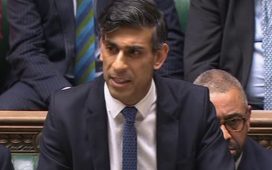Shortly after Thursday’s elections for the European parliament, we shall be witnessing the 75th anniversaries of D-Day and of the terrible carnage of the battle of Monte Cassino. One hopes that memories of these events – or, in many cases, learning about them for the first time – may concentrate minds on all sides in the debate about our future relationship with the rest of Europe.
It was the horror of the second world war that led European leaders to bring individual countries together in the hope that future conflict could be avoided. Despite the fantasies of Nigel Farage and his ilk, winning that war was hardly a solo effort on the part of Great Britain. The Americans were an indispensable force in the D-Day landings; Polish forces lost many troops fighting at Monte Cassino. And, of course, the war was won by the allies as a whole, who included the US, Commonwealth countries and, not least, the Soviet Union.
Unfortunately we know what happened after the USSR combined with us to defeat Germany: the division of Europe between the west and the Soviet bloc, with Poland, on whose behalf we had gone to war, in that bloc; the cold war; and chronic fear of a nuclear confrontation.
The European Economic Community (now the European Union) was such a success that both Conservative and Labour prime ministers – Harold Macmillan, Harold Wilson and Edward Heath (all of whom had memories of the war, and two of whom had fought in European conflicts) – tried to join it, with only Heath being successful.
We joined in 1973, but the anti-European forces were so strong within the Labour government of 1974 onwards that Wilson resorted to a referendum in 1975 as the only means of resolving the tension: going above the heads of his party to the people – and succeeding.
David Cameron resorted to a similar procedure to resolve differences within the Tories. He failed, leading to consequences of which we, and our long-suffering fellow Europeans across the Channel, are only too aware. Indeed, that well-informed commentator on Europe, Charles Grant, reports in a bulletin from the Centre for European Reform entitled The Brussels View of Brexit that Michel Barnier, leader of the European commission’s negotiating team, is so exasperated, along with President Macron himself, that the French are now in the “we are better off without the British” camp. They wanted a short extension of the article 50 deadline because “the British would not work out what they wanted unless faced with the precipice of a no-deal exit”.
Grant writes that the opposing camp, including the European council president, Donald Tusk, commission president Jean-Claude Juncker and most member states, were worried that an acrimonious Brexit “would threaten western coherence at a time when autocratic leaders – such as Putin, Trump and Turkey’s Erdoğan – were working hard to undermine the multilateral order in general and the EU in particular”. Germany’s redoubtable chancellor, Angela Merkel, was in this camp.
Here we are, with echoes of the 1920s and 1930s in the rise of the extreme right, trade wars and protectionism initiated by the dreadful Trump – prompting what looks like competitive currency devaluation by China – and Nigel Farage and his Brexit party are leading in the polls.
Leading, but only up to a point. It is a reasonable bet that the combined Remain vote on Thursday will exceed the Farage vote by some margin, although the great demagogue will have a field day proclaiming the largest vote for one party.
Now, I recognise the concerns of those who say that if we do get a second referendum, and the result is only marginally Remain, wounds are unlikely to be healed. What is needed is a resounding 60% Remain vote (in 1975 it was 66%). This week’s elections look like being a kind of referendum, and the wonderful Gina Miller, with her Remain United website – the name speaks for itself – is doing her best to gather the anti-Farage forces with advice on tactical voting.
What the Remain cause really requires is for Jeremy Corbyn and his lieutenant Seumas Milne to come to their senses and acknowledge that “Europe” is not the enemy of social progress. In the referendum campaign of 1975, Tony Benn was what we should now call a leading Brexiter. Corbyn, a disciple of Benn’s, was, shall we say, a not-so-leading Brexiter. Corbyn is stuck in a time warp. The estimable Hilary Benn, Tony’s son, is not.
Until power of a sort went to his head, Corbyn professed to believe in what his troops wanted. His troops, overwhelmingly, are Remainers. Come on, Jeremy: exercise leadership and statesmanship, and go down the right way in history.













